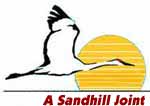PhoneCon 2.0 is running down the track right at us, mars light flashing, whistle howling in a rising doppler shriek!!!
Where are you now?
Don’t forget the kitty litter on your way home.
Should I call out for ‘za?
That’s right biz-guys and val-gals! It’s time for PhoneCon 2.0. Since Alexander Graham Bell invented the telephone in 1876, this thing has grown like gangbusters! After the first PhoneCon in 2024, we vowed to do it again soonest, and I guess this was about the soonest we could do it. We weren’t sure if we should invite women, but hell… we weren’t sure if we should invite men either. We decided not to invite engineers and graphic artists, so if you see any of them in the lobby, well… they’re crashers.
Go grab yourself a PhoneCon badge for your blog… the conference planner has us on a tight schedule and it looks like we have less than eleven hours before the plenary session begins.
I understand we’re due to open with a stirring rendition of the Marseillaise performed on the fipple flute, then there will be some talking and more talking and then some talking and stuff, until finally the fat lady sings. And in this case, the fat lady is me. I’ve prepared several numbers for your edification and delight, but I’m also willing to take requests. Just hum a few bars… for the click through impaired, the agenda is reproduced below:
TENTATIVE AGENDA:
Introductions
ConclusionsBLAHAHAHA!
Okay, no, seriously, you’re in charge. But I was talking with the Co-Vice-Honorary-Capital- Advisory-President this evening, because the Chief Evangelist of the Chairman of the Bored whom I originally made this shit up with last time was ’sleep, and we came up with some ideas to kick around. Please bring your own topics.
Some Topics and Estimated Runtime:
Are you experienced? - 3o minutes
Favorite Hues - 3 hours
Wikipedia–”fixed” or free to procreate? - break out groups: 5 minutes.
What makes the web (AKA: meaning making 101) — ongoing
Frank Paynter: A song - 2 minutes
Conclusion - 30 seconds (AKA: Bye!)


 If anybody can clue me regarding wtf “open source wireless mesh networking” might be, I’ll be tickled pinkularly. I ran into
If anybody can clue me regarding wtf “open source wireless mesh networking” might be, I’ll be tickled pinkularly. I ran into 




